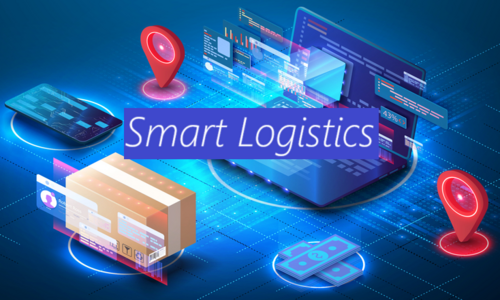Smart logistics encompasses the use of technologies like data analytics, AI, and IoT sensors. These help in streamlining and optimizing the complex supply chain processes. From real-time monitoring to cost efficiency, the benefits of applying advanced technologies are many. Firstly, stock outs in the supply chain reduce which increases product availability. Secondly, this leads to timely delivery of raw materials through demand forecasting and real-time tracking. Manufacturing sectors receive their goods on time and can deliver finished products within deadlines. Let’s get into more details of how smart logistics impacts quality management in 2026.

Jump ahead to
What Will Be The Impact Of Smart Logistics On Quality Management In 2026?
Smart logistics get smarter in the upcoming year with manufacturing units and factories implementing artificial intelligence, IoT, etc.
Process automation
The application of robotics and AI result in process automation and optimization. This reduces the rate of human intervention in procedures related to quality as well as supply chain. Automated organization of stored products and management of business procedures diminish the probability of errors.
Low risks
Lesser the human intervention in certain tasks, less is the number of accidents. An accidental toxic spillage or collision between products can tamper with quality standards. Warehouses or factories implementing smart logistics are free from such operational risks.
Time reduction
Another sign of effective quality management is reduced operating times which implies resource savings. Automated processes minimize the time to receive and organize material supplies in manufacturing segments. The dispatch of finished commodities also becomes more swift.
Improved monitoring
Smart logistics facilitates improved control over production materials through real-time tracking. A delay in the procurement of resources due to supply chain malfunction causes immeasurable manufacturing disruption. This ultimately affects the quality of the end product as well as its delivery to consumers. The advanced technologies provide the information needed to identify delivery shortages.
Quality maintenance
The application of smart logistics solutions bolsters an organization’s brand reputation. It minimizes the production of faulty commodities which in turn dwindles the need for costly warranty claims. Naturally, consumer satisfaction increases resulting from the consistent delivery of high-quality items.
Cost effectiveness
Smart logistics enables manufacturers to not just track but even optimize the routes of their material suppliers. Often, the latter take long routes unnecessarily or due to ignorance. This increases their fuel costs thereby, adding to the production expenses. Not only do suppliers charge more but their untimely arrival causes manufacturing delays. Also, there are chances for the condition of production materials to deteriorate which ultimately compromises with the quality.
What Are The New Trends In Smart Logistics In 2026?
The emerging trends of 2026 promise improved supply chain visibility and better control over manufacturing operations.
IoT
Integration of IoT into logistics facilitates humidity and temperature monitoring for perishable commodities or manufacturing supplies. They ensure quality management through transparency and efficiency in the real-time visibility of the supply chain processes. This also caters to the requirements of a product’s regulatory compliances during transit. IoT offers predictive analysis for demand fluctuations, as well.
AI
Implementing artificial intelligence is the prime focus of smart logistics in 2026. Machine learning and AI algorithms encourage proactive handling of demand fluctuations. AI-driven virtual assistants and chatbots streamline communication between manufacturers and suppliers. They also assess production cycle flaws and analyze risks for immediate mitigation.
Robotics
Robots enhance productivity and offer greater uptime than human workers. They are not used to replace humans but work in collaboration with them for increased efficiency in quality management. 2026 will witness the popularity of AMRs(Autonomous Mobile Robots) and cobots(collaborative robots). They are of great assistance to goods transportation and pick-up from facilities and warehouses.
Last mile delivery
This arena has undergone significant transformation to face challenges like regulatory complexities, customer preferences, and traffic congestion. Strategically positioned micro-fulfillment centers, autonomous drones, and robots reduce transit time for product delivery. On the other hand, suppliers speed up the delivery of materials to manufacturers which prevents quality issues.
The greatest advantage of smart logistics is the increased automation of manufacturing processes that boost quality maintenance. It encourages data-driven decision-making which leaves very little room for operational deviations from the initial production plan. The availability of real-time data is another significant benefit of smart logistics. Data analytics being one of the advanced logistics solutions now help companies predict their equipment or vehicles’ need for maintenance. As a result, the risk of breakdowns and downtime decreases.
Conclusion
Timely delivery of products largely depends on the availability of the right vehicle at the right time. 2026 gears up for experiencing the usefulness of autonomous vehicles like self-driving trucks or drones. Real-time monitoring of shipments will help production workers check with material suppliers from time-to-time for their earliest possible delivery. An improvement in the overall flow of goods lets a manufacturing company skip several unnecessary steps along with their expenses. Instead, the same money is invested in the procurement of standardized resources for high quality outputs. Courses like Logistics and Supply Chain Management Training are designed to keep professionals updated about the latest trends.



